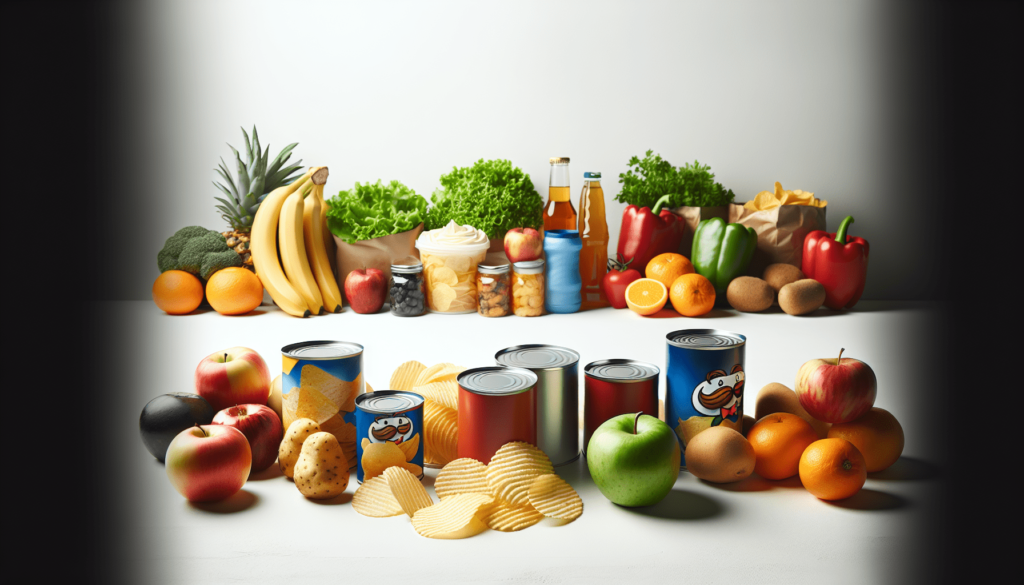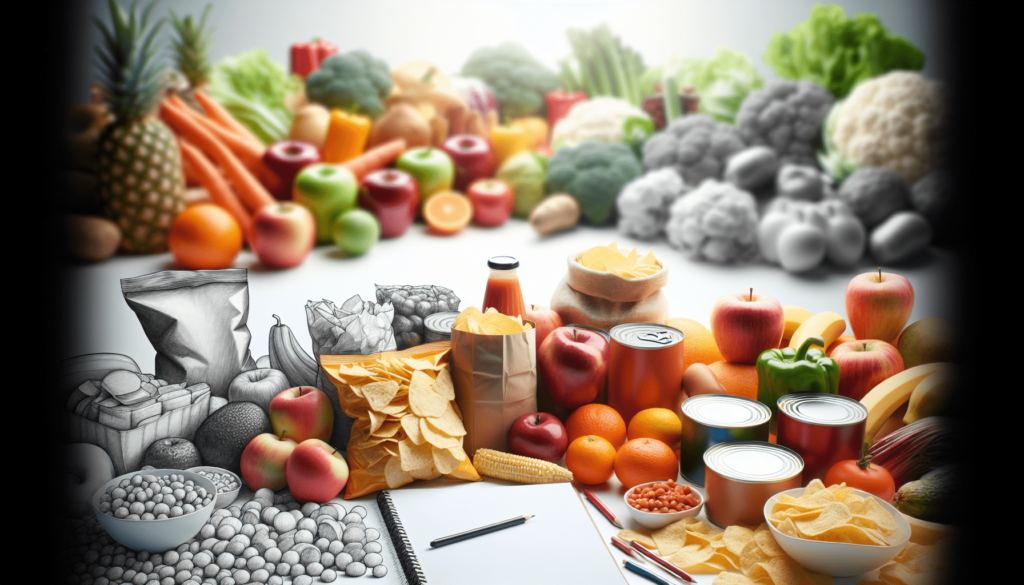Navigating the landscape of modern dietary choices can feel like a maze, but understanding how processed foods impact your health is key to making informed decisions. Processed foods are nearly everywhere, offering convenience and flavor that can be hard to resist. From frozen dinners and fast food to snacks and sodas, these products are staples in many diets. However, they also come with health implications that deserve your attention. In this article, we’ll explore the myriad ways that processed foods can affect your body, potentially influencing everything from your weight to your risk of chronic diseases. By gaining insights into these effects, you can better manage your diet and aim for a healthier lifestyle. Have you ever wondered how that packet of ready-to-eat noodles or that box of frozen pizza impacts your health? Today, processed foods are ubiquitous, making up a significant part of many people’s diets worldwide. But what does this shift towards convenience-focused dining do to our body and overall health? Let’s dive deep into the world of processed foods and uncover their effects on health.
Understanding Processed Foods
Before we delve into the impacts, it’s important to clarify what processed foods are. Essentially, any food that has been altered from its natural state primarily for safety reasons or convenience is considered processed. This includes food that has been cooked, canned, frozen, packaged, or changed in nutritional composition with preservatives, flavors, or other additives.
Categories of Processed Foods
Processed foods can be categorized into minimally processed, moderately processed, and heavily processed.
- Minimally processed foods include bagged spinach, cut vegetables, and roasted nuts. They are generally altered very little and often for preservation.
- Moderately processed foods encompass ingredients such as canned tuna, baked products, and cheeses. They often have added salt, sugar, or other substances for flavor and texture.
- Heavily processed foods are those such as frozen meals, snacks like chips, and ready-to-eat foods like deli meat. These not only include high levels of salt, sugar, and fat but also artificial colors, preservatives, and flavor enhancers.
Understanding these categories helps you identify what types of processed foods you may regularly consume and how they might affect your health.
Nutritional Impact of Processed Foods
The degree of processing often significantly impacts the nutritional content of food. Let’s look at how these changes can affect your body.
Loss of Nutrients
Processing can often strip away beneficial nutrients such as vitamins, minerals, and fiber. For example, milling grains to create white flour removes the bran and germ, resulting in a loss of dietary fiber, iron, and B vitamins.
Added Sugars and Fats
Many processed foods contain high levels of added sugars and fats, which can contribute to various health problems like obesity, heart disease, and type 2 diabetes. For instance, a single can of soda can contain up to 10 teaspoons of sugar, significantly increasing your daily caloric intake.
Sodium Content
Sodium is another common addition in processed foods, used both for flavor and preservation. High sodium intake is linked to hypertension, which is a risk factor for heart disease and stroke. The table below shows the sodium content in common processed foods.
| Food Item | Average Sodium Content (mg) |
|---|---|
| Canned soup | 700 – 1300 |
| Frozen pizza | 500 – 1000 per slice |
| Ready-to-eat cereals | 150 – 300 per cup |
| Deli meats | 500 – 1100 per 100g |

Health Risks Associated with Processed Foods
Consumption of high amounts of processed foods can lead to several short and long-term health effects.
Weight Gain and Obesity
Processed foods are typically high in calories, fats, and sugars but low in nutrients, contributing to weight gain. Obesity is linked with several chronic diseases, including diabetes, heart disease, and certain cancers.
Cardiovascular Diseases
The excessive salts and fats in processed foods can lead to high blood pressure and elevated cholesterol levels, increasing the risk of heart disease.
Type 2 Diabetes
Regular consumption of high-sugar processed foods can lead to an increased risk of type 2 diabetes. The body might become resistant to insulin, which regulates blood sugar levels.
Digestive Issues
The lack of fiber in many processed foods can lead to digestive problems such as constipation and bloating. Over time, a diet low in fiber can contribute to more serious digestive disorders, such as colon cancer.
Behavioral and Psychological Effects
Beyond the more visible physical health impacts, processed foods can also affect your mental health and behavior.
Addiction to Processed Foods
The high fat, sugar, and salt content in processed foods can make them addictive. These ingredients can trigger the brain’s reward system, similar to tobacco, alcohol, and even drugs, leading to dependency and overeating.
Mood Fluctuations
Diets high in processed foods can affect your mood, leading to irritability and a higher risk of depression. These foods often have high glycemic loads that cause blood sugar spikes and crashes, affecting your mood.
Cognitive Decline
Emerging research suggests a diet high in processed foods might be linked to poorer cognitive functions and a higher risk of neurodegenerative diseases.

Making Healthier Choices
While it’s challenging to completely eliminate processed foods from your diet, making mindful, informed choices can significantly minimize their negative impacts on your health.
Reading Labels
Always read nutritional labels to understand what’s in your food. Pay special attention to the levels of saturated fats, sugars, and sodium.
Increase Whole Foods
Try to base your diet more on whole foods such as fruits, vegetables, lean meats, and whole grains. These foods are naturally lower in harmful additives and higher in essential nutrients.
Cooking at Home
Prepare meals at home where you can control the ingredients and avoid unnecessary additives. This not only ensures you’re eating healthier but also helps you develop a better relationship with food.
Conclusion
Processed foods are a reality of modern diets, but understanding their effects and making conscious choices can help mitigate their health risks. By educating yourself and adjusting your eating habits, you can enjoy the convenience of processed foods while maintaining your health and wellbeing. Remember, every small step towards eating whole and minimally processed foods can lead to significant health benefits in the long run.
